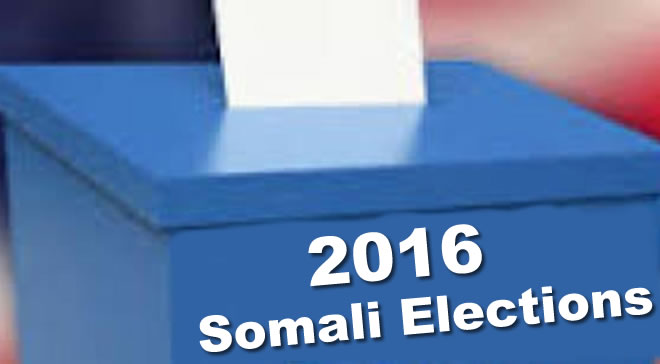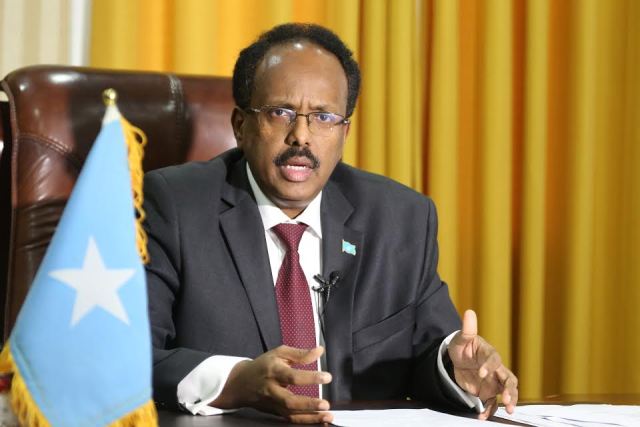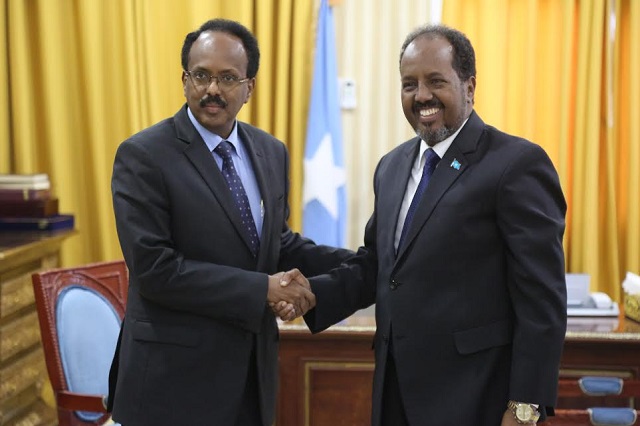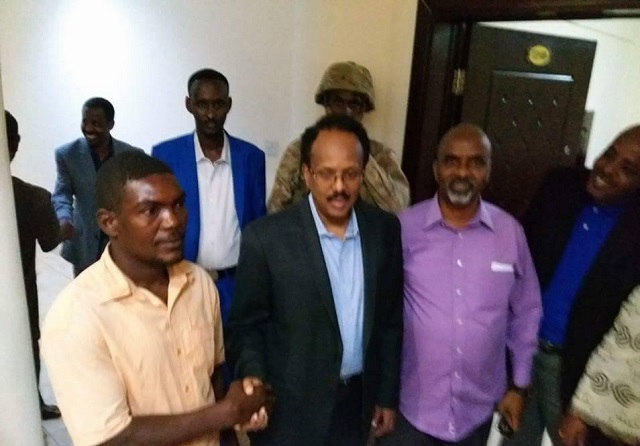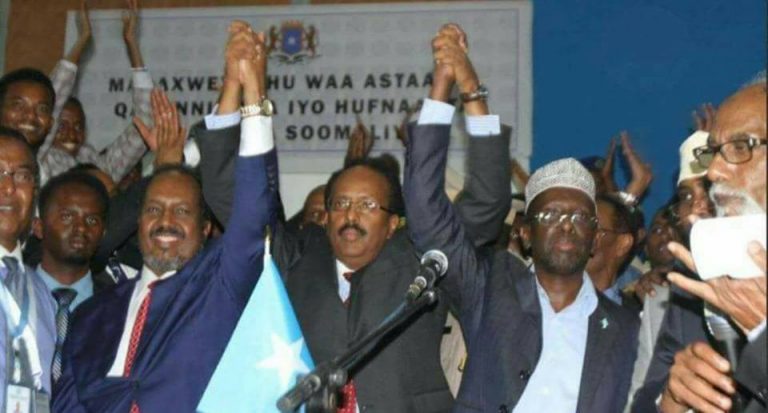The precarious security and political situation in Somalia is rapidly degenerating due to the vacuum created by the ending of the term in office of the current leaders of the federal government – the president, the federal parliament, and the Council of Ministers – and to the impasse of the 2016 electoral process. The national and local institutions of the federal government are unable to manage responsibly and independently their institutional duties in accordance with the provisional constitution during the political transition. For example, articles 115, 118, and 127 of the provisional constitution prohibit the participation of the security forces and civil servants in political parties and campaigns, but the president of the federal government uses civil servants and security forces, national TV, radio, and other public assets for the launch and promotion of his presidential campaign for reelection. This blatant disregard to the rule of law promotes abuse of power and corruption with no fear for accountability.
Accusations about plundering of public resources, organized criminals, and social divisions are rife and as a result public confidence in the leadership of the federal government plummeted. Current leaders are not concerned to dispel such widespread allegations of abuses and political violence with concrete actions. This fits the traits of predatory leadership.
The clear 4-year office term for the federal parliament and president provided under articles 60 and 91 of the provisional constitution respectively did not compel the officeholders to prepare the mandated election system for legitimate political competition years before end of their terms. Additionally, the late admission in 2015 for the impossibility of one person and one vote election for the federal parliament taking place in 2016 did not induce the imperative corollary to offer immediately a well thought, well-crafted alternative electoral model. Therefore, the byzantine indirect 2016 electoral process for parliamentary and presidential election is corroding the hopes for
The Somali National Leadership Forum (NLF) of 8 members issued multiple communiqués prescribing disjoined and sometime changed electoral rules. For the lack of preliminary democratic political discussions about the framework of the electoral process and each communiqué has left many issues unresolved or created new problems to the point that the members of NLF publicly disagreed on the last two communiqués.
The persistent contentious issues in the electoral process include the Upper House of the federal parliament for different reasons, the 30% share of the women in the federal parliament seats, the formation of Hiiran and Middle Shabele State, the Electoral Dispute Resolution Mechanism (EDRM), the integrity and impartiality of the Federal and State Indirect Implementation Teams (FIEIT, SIEIT), and the funding of the electoral process. The partisan perception of the electoral teams is deep and widespread.
Ads By Google
In particular, the Communiqué of NLF meeting held in Mogadishu on September 6-14, 2016 reported the following decisions:
- Nomination of undisclosed 25 members of EDRM with terms of reference approved.
- Signing of unpublished Code of Conduct that binds all members of the NLF and all presidential and parliamentary candidates.
- Formation of National Security Committee (NSC) on the electoral process composed of NLF members except the Deputy Prime Minister from Somaliland, H.E. Mohamed Omar Arteh and of an additional five ministers of the federal government-foreign affairs, finance, internal national security, defense, and justice.
- Allocation of one seat to women in every three seats of the federal parliament. Only women candidates will compete for 1 in 3 seats formula of the federal parliament.
- Seizure of the Electoral Process by the NLF, which means that NLF maintains oversight control over the implementation of the electoral process.
In reaction, on September 18, 2016, the IC represented by the United Nations, the African Union, the Intern-Governmental on Development (IGAD), the European Union, Ethiopia, Italy, Sweden, the United Kingdom, and the United States of America, issued a joint statement which provides the followings guidelines:
- It directs the FIEIT to expeditiously compile and publish a detailed explanation of the electoral model, especially with regard to the roles and responsibilities of all implementation bodies- FIEIT, SIEIT, 135 leaders, electoral colleges, and EDRM- and the rules and procedures for candidate registration, polling procedures and the code of conduct for public information. It also directs FIEIT to set the date in which the traditional leaders identify the seat for women in every three seats.
- It urges all stakeholders including the NLF to respect the guiding role of the FIEIT and to allow it to clarify and resolve the outstanding issues of the electoral process. This apparently dissolves the NLF and annuls the seizure decision.
- It repeats the warning that the current leaders will not be caretakers after November 6. Thus, only elected leaders before that date will gain legitimacy and lead the federal government.
- It backs the suggestion to postpone the completion of the federalization and constitutional review processes after the political transition in 2016 and in the meantime it puts forward interim political, security and logistical process for facilitating the participation of Hiran and Middle Shabelle regions in the 2016 electoral process.
- It stresses maximum technical integrity, uniformity, and transparency deemed as critical yardsticks for the credibility of 2016 electoral process.
- It delegates the United Nations to administer the budget for electoral process.
However, there is dichotomy between the timeline of the electoral process and the need for public education on yet to be published detailed electoral model. It is perplexing to note the welcoming of the beginning of the implementation of an electoral process that fails to the test of free, fair, transparent, and uniformity principles for lack of credible administration and procedures for accountability. Current leaders are not qualified to administer the electoral process for conflict of interests.
As an omission, the NLF and IC communiqués remain silent about the prolonged crisis between Galmudug state and Ahlu Sunna Wal Jama (ASWJ). This standoff creates political chaos and differences as a result of the duplicitous positions of the IC and federal government.
Moreover, the federal government is adamantly denying or restricting the exercise of freedom of expression for security and other ludicrous excuses. The recommendations of the UN Human report to stop the violations of freedom of expression committed in the past 4 years by the federal government fell on deaf ears. The federal government ignores its responsibility to provide security and protection to all citizens for the exercise of their political and human rights.
There is palpable apprehension about the arbitrary implementation of an electoral process while the federal government disregards the respect of the political rights of citizens. Large groups of the Somali population are loudly complaining about the fairness of the electoral process and have expressed their collective decision of boycotting. The deepening of the impasse of 2016 electoral process proves the leadership failure of the federal government and the urgent need for course correction for gaining public confidence in the electoral process and democratic governance.
Mr. Mohamud M Uluso
mohamuduluso@gmail.com
advertisements

